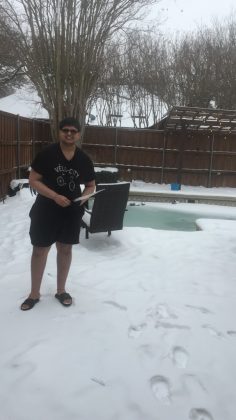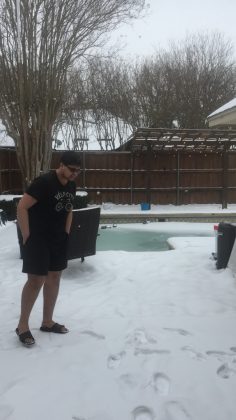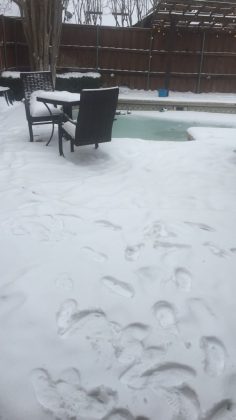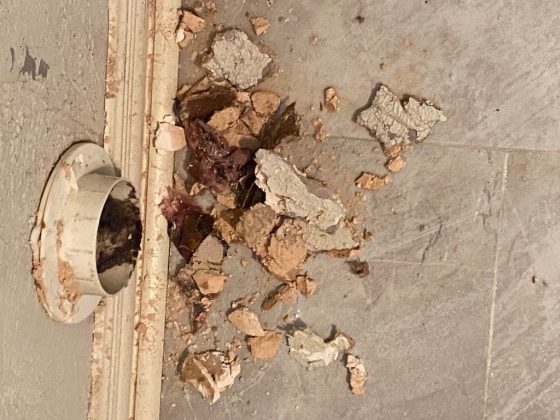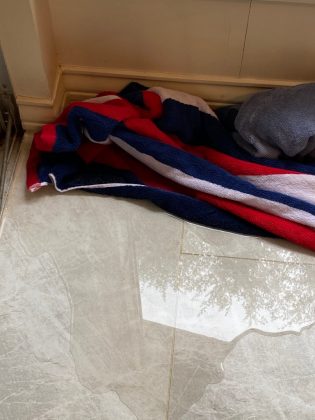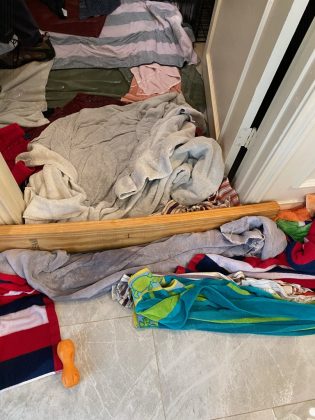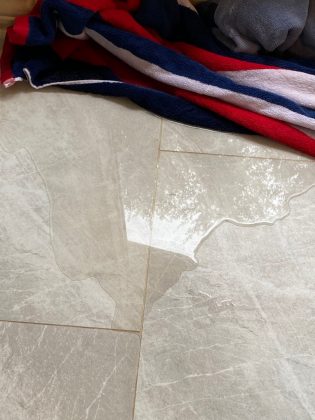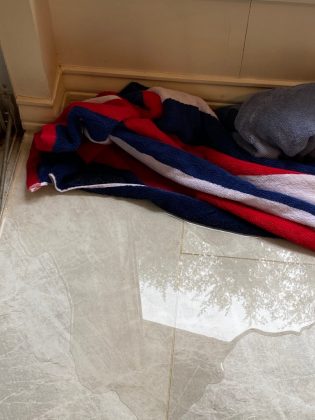Texas isn’t renowned for having freezing cold temperatures, but rather sweltering, triple-degree heat. But over this past weekend, we can say that hell has now frozen over. Instead of outdoor sports, we now see kids sledding down hills, bundled up in winter coats. Instead of people rushing from place to place, cars drive cautiously, in fear of another accident. It is an unprecedented time where Texas is hitting record low temperatures.
2020 had the coronavirus pandemic, wildfires, racial protests, famous deaths such as Kobe Bryant, and other dangers that consumed our energy. Now, the capital protests and Trump’s second impeachment trial take up January 2021, and this storm and its aftereffects take over February. Maybe 2021 will be just as weird and unusual year as the last one. Whatever happens, The Roundup is here to cover the story and tell what happened over these past 1-2 weeks. Jesuit has had school cancellations, like with the flu outbreak during the spring semester of my freshman year. However, the past snow-ridden week is unprecedented, where students cannot even attend classes. So how did we get to this point? And what happened during this hectic week? And who picked the name, Uri?
General Timeline
Thursday, February 11 & Friday, February, 12
After an unexpectedly cold night on Tuesday, an ice storm seemed to pass through the city, making it difficult for me to even leave my house. The weather experts stated that it was thicker ice, which contributes to unsafe driving conditions, and cancellations to make. This black ice, as they call it, is impossible to see, and those who drive particularly fast will not have the same traction as typical road conditions.
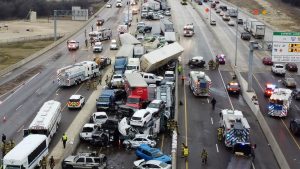
In fact, a crash out in Fort Worth due to fast, colliding trucks unable to stop led to a pile-up on I-35 W. This caused the deaths of 6 people and hundreds of cars piled up across the road. Happening around 6 A.M., hundreds were sent to the hospital for serious injuries, as vehicles are all jammed together. This freezing rain is no joke, and driving in freezing rain is certainly the same.
UIL rules apparently say that at cold enough temperatures, games will be canceled or postponed. This almost happened with the Jesuit Soccer team, for their game against Berkner was supposed to be at 7:15. However, officials at the school told the players and families to show up as soon as possible to start the game, which started at around 6:45. The JV team was winning 2-0 when they ended the game to let the varsity team play their game, but this cold weather didn’t show up spontaneously.
It was coming for the past couple of days and continued through Friday. Classes went asynchronous on Thursday, and resumed on Friday with Gold Cohort, as the school announced going into hybrid learning until March 1. Few people, in fact, attended school that day, as many stayed online with the weather concerns. All activities at school were canceled, including a huge matchup between Jesuit and Irving for soccer, which has been postponed until a later date. (Our big Expository Bowl has also been postponed, for anyone wondering.)
Saturday, February 13 & Sunday, February 14
The cold temperatures simply continued through Saturday. Nothing special.
The snow has officially landed on Sunday! I woke up this morning to a Valentine’s Day miracle! The last time that I remembered having snow was roughly 5-7 years, but I could definitely be wrong. The snow is somewhat thick, and my 3-inch boots can step through the snow as I head down my street. It’s more fluffy snow, in my opinion, but there were huge amounts of it. It blocked my gate, and I doubt that I will leave my house. Friends of mine have been making snowmen and thoroughly enjoying the day.
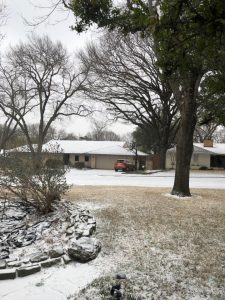
Warning signs for carbon monoxide have also been shown on Channel 8. Because people have lost power, they are trying to use generators to keep power running, but without the air conditioning to move the toxic gases out, they just remain within the house. It is a silent killer because it is an odorless, colorless gas with harmful effects. It looks like it’s gonna be a long weekend, and I don’t think that classes will happen for the next couple of days. Let’s all stay careful…
Monday, February 15 & Tuesday, February 16
The snow has still remained and people have been stuck in their homes for the past couple of days. Most of the power issues have occurred at coal and natural gas power plants, as most of the outages occurred on Monday.
Jesuit was already closed for President’s Day, but the school has been canceled for Tuesday and will be asynchronous for Wednesday. In an email sent to the community on Monday, Jesuit stated:
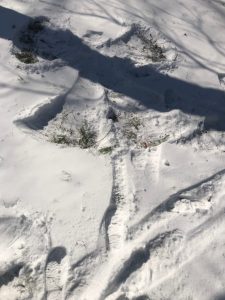
“Due to many families still being impacted by power outages in the area, in addition to the potential for more inclement weather in the next 48 hours, classes for the rest of the week (2/16-2/19) have been CANCELLED. Classes will not take place synchronously or asynchronously. Based on the information and feedback we have received from our community, we feel this is the best option to allow families to take care of one another and for the campus to be secure and safe for when we reopen.
Wednesday, February 17 & Thursday, February 18
Over Tuesday night, another layer of snow has been added, and power is beginning to be restored to families across the area, but there is still a huge amount of people without power. School closures and cancellations have continued through this week, and the weather looks like it will change in the next coming days, but not for sure. Things may go back to normal soon, but it is unsure what exactly will happen.
Electricity & Power Outages
In fact, Governor Greg Abbott said this on Fox News on Tuesday regarding renewable sources. “It shows how the Green New Deal would be a deadly deal for the United States of America. Texas is blessed with multiple sources of energy, such as natural gas, oil, and nuclear, as well as solar and wind. Our wind and our solar power got shut down and they were collected more than 10% of our power grid. It just shows that fossil fuel is necessary for the state of Texas, as well as other states, to make sure that we were able to heat our homes in the wintertime and cool our homes in the summertime.”
“The ability for gas generators to produce, particularly at full output, was affected by the freezing impact on the natural gas supply. So getting those resources back is the central solution to getting people their power back,” said Bill Magness, CEO of ERCOT during a live stream on Wednesday. So, while Texas does have renewable sources of energy to supplement its energy needs, not only are renewable sources like wind and solar not the main source but also all of the production plants, regardless of type, are shut down due to the cold temperatures.
However, Abbott looked to clarify his remarks the day after in a press conference to the people.
“The fact is every source of power the state of Texas has access to has been compromised because of the ultracold temperatures or because of equipment failures… What I made clear was the fact that if we relied solely upon green energy, that wouldn’t be a challenge, but in Texas, we did not rely solely upon green energy. We have access to all sources of energy.
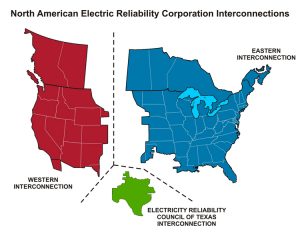
Because Texas has its own power grid, the state cannot divert its supply to the Western and Eastern Interconnection Grids, which supply the rest of the country. In an interview with MSNBC on Thursday, February 18, Victoria Maria De Francesco Soto, a professor at UT Austin at the LBJ School of Public Affairs, talked about how the issue of power hasn’t just started now.
“After the 2011 severe winter storm that was similar to this one, but not quite as bad, a number of recommendations and guidelines were made that the power companies all the Texas grid needed to winterize. Winterization means you need to pay the price to winterize.
However, the state and the state’s political leaders made guidelines and they didn’t make it obligatory. So when these power companies, who ultimately are about making a profit, r have the choice to either spend the money and winterize or not spend the money, they’re going to take the latter and not spend the money. We saw the dire warnings, and there were commissions, recommendations, and [unfollowed] guidelines. This is why we’re in that mess.
The power companies didn’t follow the recommendations to winterize, because we’re at it alone within our own power grid. We weren’t able to easily look to other grids to backup the support. It is just one policy mess after another that has put us in the situation that we’re in now, where people are losing their lives.”
This issue has now stemmed into a hugely political issue into public policy and government intervention, a topic to which Texas is no stranger. As a highly conservative state, government intervention means intrusion, and as a state-based on rugged individualism, we like to keep things private and independent. This was shown through Former Governor Rick Perry’s controversial statement on this crisis.
“Texans would be without electricity for longer than three days to keep the federal government out of their business. Try not to let whatever the crisis of the day is take your eye off having a resilient grid that keeps America safe personally, economically, and strategically.”
In contrast, it doesn’t seem that the case, as even Jesuit students who are healthy, blessed enough to have nice homes and shelter, and economically stable are still struggling. There are individuals in the community who have a difficult time accessing these same resources. As Soto noted in this interview, “It’s easy to say, hang tough, stick it out when you’re in a place of privilege, either because you’re healthy or you haven’t lost power, or you have all of these resources that allow you to do that. But for those of us who are so vulnerable in this community, that is just completely heartless.”
Aarin Jain ’22 was another one of the many Jesuit students affected by this storm. He also spoke about the power outages.
“We lost it on Sunday through Monday and we’ve had three hours in three days. It was restored on Wednesday. Our entire block lost power. People in rich neighborhoods, as well as hospitals and emergency rooms, won’t lose power. If you go to any grocery store around here, the shelves are empty due to the power outages. We went to Kroger yesterday and there were no vegetables or milk there, just orange juice. My neighborhood in Coppell has lots of one-story houses, with mid to upper-class families, but it’s certainly not as affluent as other neighborhoods.”
To be fully blunt, there are families who are worse off than us where food security and safe shelter are hard to come by. If this is what it’s like for Jesuit students, then imagine what it’s like for the most marginalized. But the issues only get worse…
Water Crisis
“Because of those freezing temperatures, cities across the state are now under boil water notices. Following official guidance, many Texans have been dripping faucets to prevent frozen pipes from bursting. Water levels are dangerously low and may be unsafe to drink. Officials are asking people to boil, tap water for drinking, cooking, and making ice, and to conserve water wherever possible. Nearly 600 public water systems across the state reported disruptions in service, affecting about 12 million residents,” noted Joe Scarborough in this MSNBC interview. Because Texas doesn’t get this kind of weather all the time, lots of things have come into place to make the biggest crisis.
This issue has been seen in the northwest region of the DFW metroplex, but there are other areas with this same issue such as University Park. “On Tuesday, more than 200,000 residents of northern Fort Worth, as well as people in Keller, Southlake, Roanoke and other nearby communities were told to boil their water as power outages affected water treatment plants, the Dallas Morning News reported.”
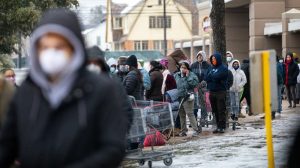
Sam Levis, who lives up in Southlake, spoke about the ever-pressing water issue, which compounds the difficulties created by the storm.
“Water became an issue in Southlake and Keller more recently on Tuesday and Wednesday. It started about conserving it, but now we are at a point of testing the water for bacteria at the water plant if there are any microprobes in the water. because a power plant stopped working. I think the processing plant stopped due to the weather, but I’m not exactly sure. I know that Westlake and Keller are having a major issue right now.”
Southlake issued this notice for its residents, warning of the unsafe water conditions:
Freezing Pipes and Flooding
I spoke to a close family friend of mine, Dr. Bertrand Brown, an anesthesiologist here in Dallas who recently had his pipes burst in his own home, leading to a massive flooding situation.
The pipe was on an exterior wall, and that’s why it, uh, frozen burst. All the pressure came to the surface and then it just burst… There’s a lot of pressure [in a frozen pipe], but it was actually behind the wall of our washing machine, so the pipe burst, and then the pressure burst through the drywall. I heard a sound and I was actually trying to have a little 20-minute nap. Then, I heard the sound and I was like, ‘Wow, I’m either at the beach or there’s water running somewhere.’ It was water pouring, pouring out of the wall. It was impressive.”
He went on to explain why residents should wrap their pipes in a cloth or rag to protect the pipes from freezing and exactly why this happened in the first place.
“You want to make it as hard as possible for the pipes not to freeze, because that it can expand. It’ll start freezing at the pipe, but the frozen water will actually extend into the house and it keeps going to the point where it can cause an increase in pressure.
There is a faucet right in front of the laundry room that I’m sure is connected.
That was frozen and then having pipes in an exterior wall. Our house is an older house, so they build a lot of pipes without enough installation. They’re literally right next to the wall, and this wall was not very well insulated at all. When you put your hand in there, it was like your hand was outside. It was icy cold air. So whatever the temperature was outside, that was the temperature of the pipes, which was like 10 degrees. We tried to make sure every room was pretty well heated, but this sets you up for failure.”
Typically, heat causes objects to expand due to greater average kinetic energy in the molecules, which can move in space at a faster rate. The opposite effect happens for cold, where the molecules don’t move as fast within a given space and are less likely to expand. However, water expands when it freezes, and when the pipes have too much pressure on them, they burst. It is similar to putting a bottle of water or a can of soda in the freezer.
Water expands when it freezes due to the lattice structure, which takes up more space. The expansion upon freezing comes from the fact that water crystallizes into an open hexagonal form. This hexagonal lattice contains more space than the liquid state.
This crucial property is what led many families to deal with massive internal flooding within their homes, another effect of this impactful winter storm.
School Cancellations
As a result of this massive power outage, many school districts have had to cancel school from us to Richardson, Plano, and Frisco ISD. Over 200 colleges, private schools, and public schools have canceled through February 18 and 19. Essentially, all schools have closed schools through February 19. Those plans may change in the near future, but most schools, including Lewisville ISD, McKinney ISD, and Allen ISD have canceled for the week.
These school cancellations have led students to find other activities to spend their time on instead of school and homework. Lots of students have been looking to spend time in the snow, creating snow angels and snowmen to document the occasion. Spending time with pets and family has also been a great way to spend this time.

With the impact of coronavirus as well as the winter storm, the Internet has also provided the forum for social interaction with peers, talking to each other via text, call, FaceTime, or even Discord. Despite the isolation caused by the storm, students have found a way to stay engaged, playing video games, listening to music, or even starting new projects. It’s almost like a second quarantine if you ask me.
Parker Leathers ’21 spoke on Thursday about some activities he did during this time. “While the power was out, talking to friends was my way out. Talking to friends all day, and if I wasn’t talking to my friends, I was talking to my family. I also called my sister at the University of Georgia, and we talked about a lot of things. Lots to catch up on. I didn’t have Internet, and I still don’t have Internet. I have power, but no Internet.”
Two students in particular were very productive during this winter storm. Derek Zhang ’22 and Aarin Jain ’22 spent this time working on a project called Project ModAgr, which dramatically increases the number of crops grown using less water, designed to help food shortages. High schoolers design projects that require entrepreneurship to The Diamond Challenge, a larger version of Shark Tank to get ranked and possibly win a prize of $10,000. Looking to win the grand prize, the two juniors submitted ProAgr as a model with a YouTube video to speak about their project.
Aarin Jain ’22 remarked on his motivation for the project, stating “I personally recognized the issues that plague farmers all over the world especially in India with the current situation that is harming Sikh farmers. I saw this system as a way to support Indian farmers as well as ensure that they can compete with greedy businesses that don’t respect the same cultural norms that many Indians abide by. Also, the widespread hunger and the overconsumption of resources due to climate change highlighted a severe issue that would kill millions, if not billions of people. This combined with the current makeshift situation of handling depletion of resources, incentivized us to design a system that could combat these issues and preserve those most vulnerable.”
Zhang also spoke about their results and progress on the project, working to improve this initial prototype.
“Aarin and I embarked on this project in order to solve the age-old issue of drought-caused famines. We hope to adopt hydroponic systems to maximize crop yield and water-efficiency in drought regions, improving the lives of millions across the world.
We’ve advanced past the first stage of the Diamond Challenge global competition, and we’re awaiting results for the next.
Due to the sheer magnitude of the project, we’re still prototyping our solution, but are considering low-volume B2C sales later this year.”
Conclusion
Texas was unprepared for this incoming polar vortex, having a generational storm, and the equipment was not upgraded to handle an issue like this. We don’t have to be an energy-regulated state or tied to the national grid, but Dallas residents are advocating for better preparation. The prices, however, may go into our electricity payments, and Texas typically doesn’t like greater taxes/payments, so we’ll have to see what will happen. One thing is clear: Texans are not willing to “tough it out” to keep us from government intervention. This is why FEMA is sending water, blankets, and meals to mitigate the crisis. No one seems to complain about that. The choice is rational.
We are humans and individuals just like the rest of the world who seek safe access to resources in times of need. That is what the government was established for.
Stay tuned to The Roundup for more coverage of Dallas news!


